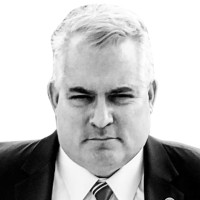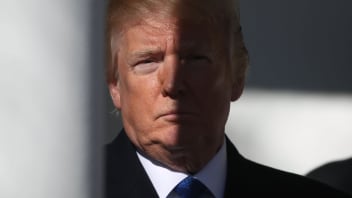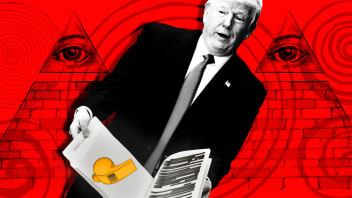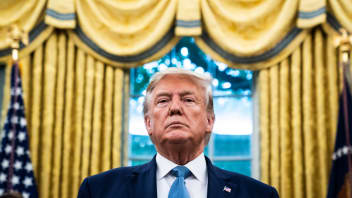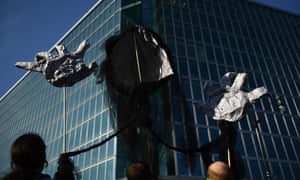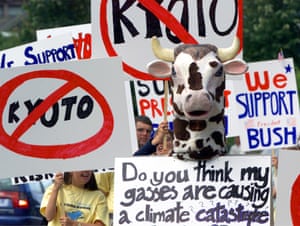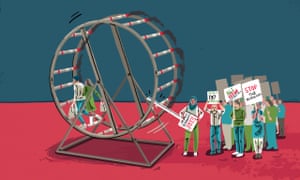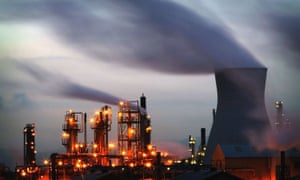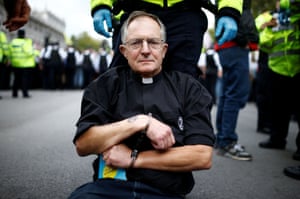
I Was a Whistleblower. The Trump Whistleblower Is About to Go Through Hell.
Retribution, soul-searching, and years of inquiry followed me after I exposed wrongdoing in the intelligence community. Imagine what the person who exposed the president faces.
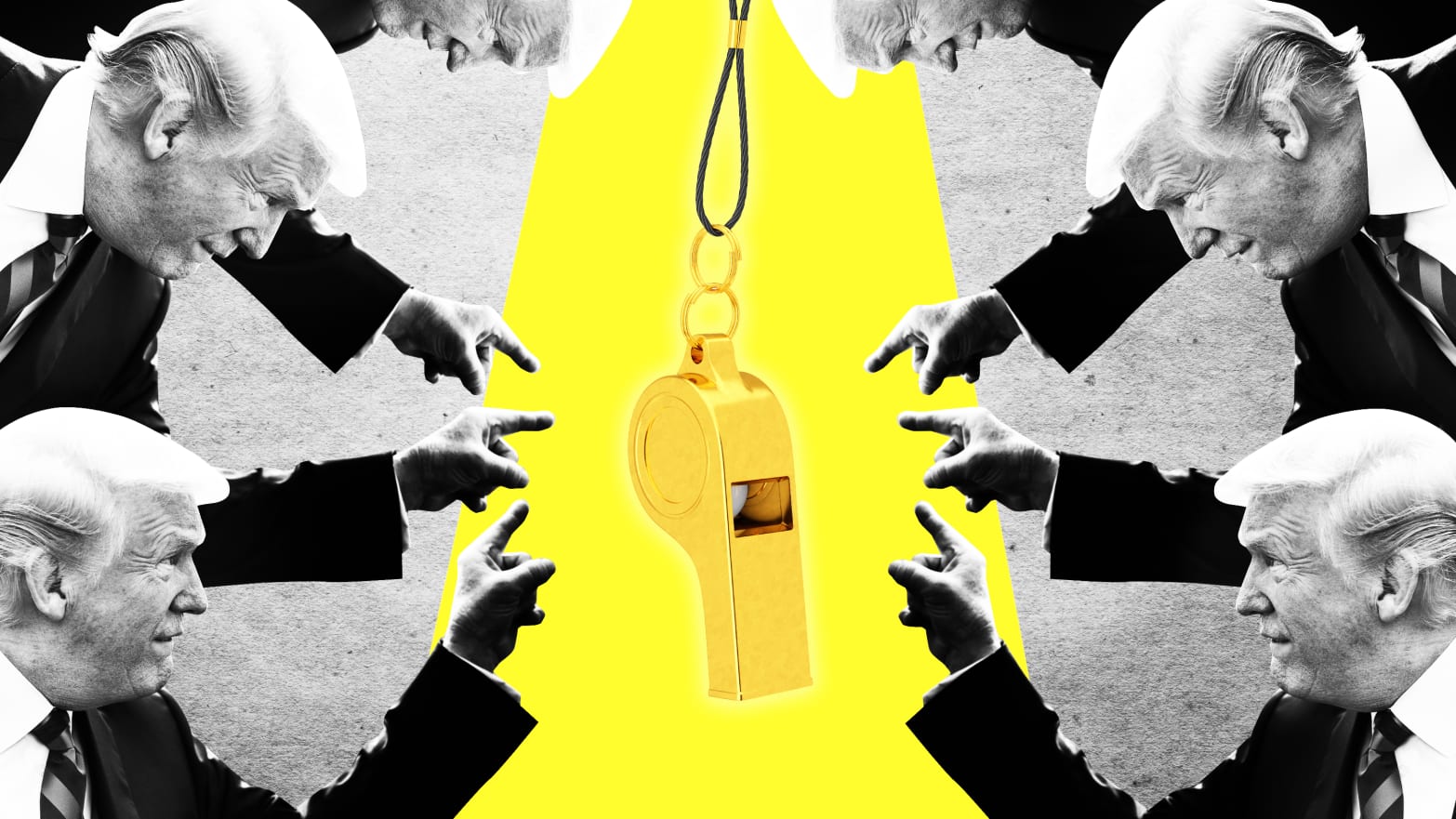
After 17 years of aiding federal whistleblowers, I became one myself.
I made three national security disclosures regarding wrongdoing within the intelligence community program used recently by a whistleblower filing a complaint about President Donald Trump and Ukraine. I was in charge of the IC whistleblowing program now overseen by Inspector General Michael Atkinson and acting Director of National Intelligence Joseph Maguire. The program is supposed to forward the complaint to Congress and then protect the source. Instead, in 2017, I was sidelined and eventually fired.
I had revealed the suppression of the disclosure to Congress that July. The matter is still classified. My disclosures were about matters important, but still garden-variety Beltway corruption allegations—nothing like the Trump-Ukraine matter. So I was a whistleblower while serving as the DNI’s advocate for whistleblowing. Existential. The whistleblowing was about whistleblowing. What follows happened to me and there are lessons for the Ukraine whistleblower and the wider country.
American whistleblowing at its best is cold and transactional: you think the violation through, you record it without emotion, you convey it lawfully, and you run for cover. When you can’t get cover or your cover is blown, the lessons are hard. The first reality the Ukraine whistleblower needs to internalize is that the arc of events may go on for years now that the disclosure is on Capitol Hill. There is a danger that the event will distract him from his long-term personal and private plans. There will be pain in the indifference or perceived betrayal of peers. He will be confused as to why the law is so clear on paper, and so obscure in practice.
“My husband, family, friends and associates are now familiar with my whistleblowing; they don’t always, however, understand why whistleblowers cannot ignore the law and remain silent as others do.”
My first whistleblowing—regarding investigative misconduct relating to the explosion on board battleship Iowa in 1989—showed me the cycle every whistleblower goes through: endless second-guessing as to future of a career; staring at the ceiling all night wondering whether family, friends and future (and current) employers would understand why I followed the rules and disclosed; and brutal self-questioning as to why I knew I had to disclose wrongdoing as others felt they could go along with the wrongdoing and not disclose.
Whether you are religious or not, you should pray for this poor soul.
That same cycle reoccurred again with respect to my later disclosures regarding the Afghan National Hospital, the movie Zero Dark Thirty, and the three matters disclosed as an intelligence officer in 2017. Over time, I have developed practices to cope with the inevitable stressors. My husband, family, friends, and associates are now familiar with my whistleblowing; they don’t always, however, understand why whistleblowers cannot ignore the law and remain silent as others do.
Whistleblowing is not optional; it is required by all executive branch employees under Executive Order 12674, signed by President George Bush in 1989, and not revoked by Trump. That whistleblowing obligation is also imposed on those having suppressed the Ukraine disclosure, as well. They are now in violation of an executive order (and a law) and are obligated to report themselves to their security officers, just as if they had taken a puff on their old roommate’s doobie at a college reunion.
Shortly after I made the 2017 disclosures to the House and Senate intelligence committees, as well as other committees of jurisdiction, I was placed under security investigation. A month later I testified to Homeland Security IG investigators on behalf of a now-vindicated CIA whistleblower. Shortly after that testimony, I was referred for removal. In between, Senators Feinstein and Harris lit up the confirmation hearing of a CIA IG nominee with two CIA reprisal cases. Five months and four hearings later, I was terminated.
Once the balloon goes up, the whistleblower is uncomfortably reliant on others to “do the right thing.”
When I blew the whistle as a naval officer in 1990, I was pretty much on my own in trying to regain my direction. On the Afghan National Hospital, Zero Dark Thirty, and the most recent intelligence community disclosures, I had a network to support me. But each time you witness wrongdoing and decide to report it, the gnawing returns: Did I do this correctly? Will my circle of trust step in to help? Will others not in my circle now, see the merits of supporting me, and step forward? Will I just be a pawn in some federal or congressional game?
Atkinson could not investigate reprisal against me because he was inspector general at the time of my removal. He had a conflict of interest. But the Council of Inspectors General for Integrity and Efficiency could have organized an investigation. They still can. The DHS IG’s findings in the case of the CIA whistleblower now provide facts essential to my case, but several other associated investigations are still pending. My 2017 complaint remains uninvestigated.
For me, this is not new: I have seen this in other whistleblowers’ experience because this is what I do professionally. For the average employee simply complying with the executive order to blow the whistle, the inability of the system to answer the question as to whether someone was hammered for blowing the whistle can be paralyzing.
I had—and still have—dedicated congressional and non-government organizations in my corner helping to find an investigating authority to review the alleged reprisal against me by former DNI Dan Coats and his senior leadership. But many of the civil servants, activists and congressional staff predicted to be at the forefront of that fight shrank from protecting whistleblowers when they considered the mortgages to be paid, the orthodontist and day school fees to be paid, and the general cost of doing business inside the Beltway.
“This is what executive branch officials fear, the law working as designed.”
After blowing the whistle in 1990 on the Iowa investigation, a fellow naval officer told me in a Newport, Rhode Island parking lot: “I was so proud of how you stood up for the sailors during the investigation; many of us wanted to, but we couldn’t, with kids and wives and all.” When supervisors and managers go after a whistleblower, they can hurt the family too—it is a powerful means of controlling the federal workforce.
As events tumble forward, there will also be anonymized leaks from unnamed “intelligence community officials.” Some of these leaks will be unauthorized disclosures; some will be authorized comments to the press; some will be unacknowledged-but-expected comments to the press to ensure “plausible deniability” for the senior-most officials, to use a Watergate-era term.
The biggest burden in the whistleblower protection arena right now lies on Atkinson and Chairman Adam Schiff of the House Intelligence Committee. When the reprising comes against the current whistleblower—and it will—will those oath-takers stand by that person? I did for the three whistleblowers in 2017 by informing the Senate and House intelligence committees, and other committees of jurisdiction, of the wrongdoing.
These moments in American public life gnaw on everyone; our reaction to the present crises tell us more about ourselves than they do about Trump. As I taught our intelligence officers and their enabling staff when I was charged with outreach to potential whistleblowers, are we true to the American values of transparency and candor? Indeed, are transparency and candor really American values?
For those now playing out their assigned roles, the task is enormous. Nothing begets more whistleblowing like, well, successful whistleblowing. This is what executive branch officials fear, the law working as designed. That is why so much effort goes into containing, rather than fostering, whistleblowing.
In my two decades of helping federal whistleblowers, I have never seen a professional and constitutional crisis of this magnitude. But now a whistleblower has effectively completed the task Special Counsel Robert Mueller failed to do: focus the public debate on the president. The American people now understand the question before the Republic, even if they have not provided the answer, yet.
Dan Meyer is managing partner of the Washington, D.C., office of Tully Rinckey PLLC. The views expressed are the author’s own and do not represent those of the U.S. Government or the firm.
